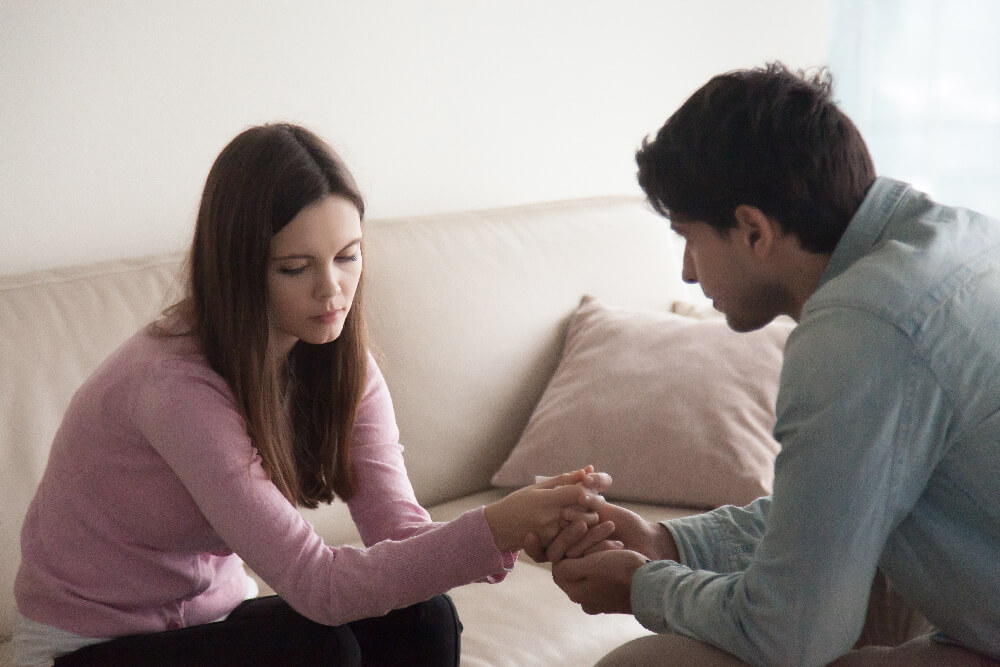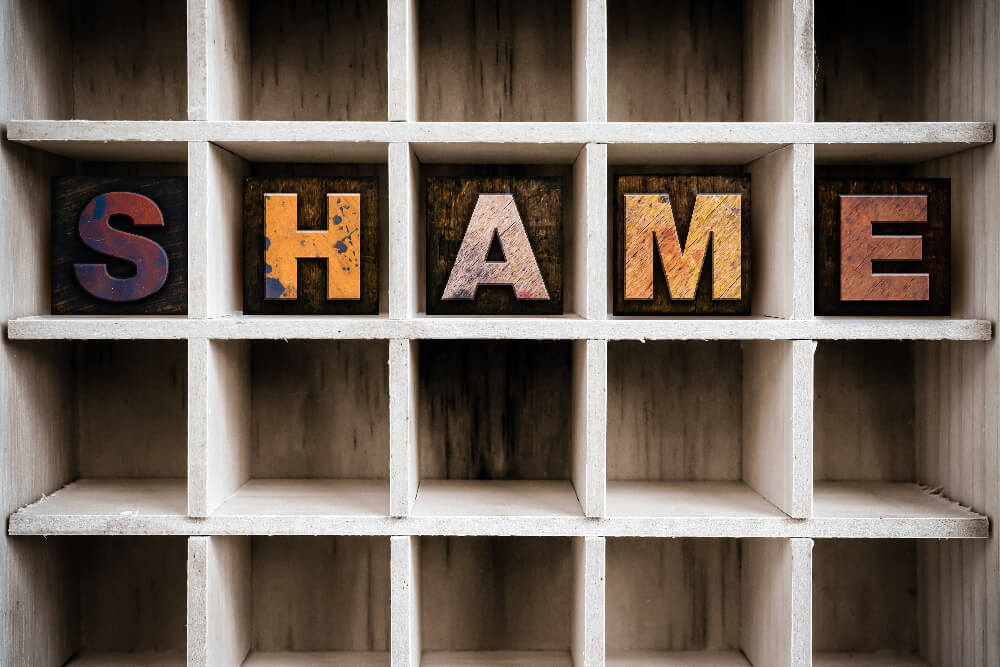
Why couples fight about money often has deep roots in each person’s core beliefs that extend far beneath the dollars and cents of finances and budgets.
The problem, however, is pervasive: Studies have shown that one-third of couples report money is a major source of conflict — and that arguments over money tend to be more intense and less likely to be resolved.
We’re going to help you understand those deeper beliefs of which you or your partner might not be aware. As we bring those to the surface, you’ll gain new insight into your money arguments. Then, we’ll offer suggestions on how to use that greater understanding to reduce or end conflicts about finances.
It’s Not Just About the Money!
John Gottman, Ph.D., the well-known author and developer of the Gottman counseling method, points out: “Arguments about money aren’t about money. They are about our dreams, our fears and our inadequacies.”
We said we were going deeper, right? Money in many ways defines who we are: how we dress, the social groups we join, the careers we choose, where we live, what we eat.
“Out of all the forces that determine our relationship with money, the most influential is our personal history — the melting pot of our childhood, teenage and adult experiences that have sculpted and re-sculpted our likes and dislikes about money throughout our lives,” Dr. Gottman explains.
Things to consider include:
- As a child, was money challenging for your family? Did your parents struggle to pay bills, rent and to buy food?
- On the other hand, was money plentiful in your family, but for your partner, the picture was far different?
- How did you look upon other kids who had more than you when you were young?
- Did your parents argue about money? Did a parent have a problem with gambling, spending too much or spending to keep up with their social group?
Research shows we do “inherit” or learn attitudes, values and beliefs about money from our parents and other family members.
Yet — and here’s the tricky part — we may not even be aware of our beliefs about spending and saving and why couples fight about money.
A Save vs. Spend Scenario
Bruce and Jerry found themselves frequently arguing about Jerry’s spending. Since combining their households, every part of their relationship was great — except the issues surrounding money. And, that “great” relationship was being negatively impacted because of increasingly frequent arguments.
Bruce was fearful of spending money. Jerry much less so. Bruce feared debt; Jerry felt some debt was just fine. As with many couples, they’d never discussed finances to any degree earlier in their relationship. After all, they both had good jobs and, now in their late 30s, enjoyed promising careers.
Yet, the tensions grew.
Jack and Jillian, on the other hand, had no longer argued about money — because they had become so frustrated because their attempts at discussions never ended in any resolution. Yet the tension between them was eroding trust and confidence. Jillian had been labeled the “spender” by Jack, and he became accused of being the “cheapskate.”
Their negative cycle of arguing had been emotionally charged, indeed. Nothing was ever resolved, understood or changed. They felt stuck.
We’ll return to these couples, but first let’s focus on the true, deeper meanings that lie beneath why couples fight about money and finances.
The Meaning of Money — and How Differences Can Help You Understand Why Couples Fight About Money
Brent Bradley, Ph.D., and James Furrow, Ph.D., in their book, “Emotionally Focused Couple Therapy for Dummies,” cite four different ways partners in a relationship may look at money:
- Security. We feel secure in our lives when we have stable finances.
- Pleasure. Money is a source of the good life — we can buy nice things, be generous in giving to others and, it seems, buy some level of happiness.
- Control. When we’re financially secure, we may feel we have more options and choices in life — where we live, work, send our kids to school.
- Status. Money shows we’re successful.
But at the root of these differences and beliefs, can lie a major gap in how partners feel and the deepest root is often fear. These deeper fears that can contribute to why couples fight about money include worry about becoming more disconnected from each other when both partners don’t share the same values related to money. Trust concerns can emerge when financial decision-making isn’t shared before expenditures are made.
Let’s Return to Our Two Couples
Bruce began to explore his fears related to money. He realized his concerns were heightened following the 2008 financial crisis when he’d lost his job in a major downsizing. He vividly remembers, like so many of his peers, when he was told his job was ending and then carrying out his box of personal belongings.
Jillian admits she likes to spend money. She grew up never feeling secure because of times when her parents struggled with housing and even having enough food. When she began her career, she enjoyed the new freedom of being able to buy things she both needed and wanted. Jack had a similar background but felt differently: He adamantly felt having a nest egg of savings was tantamount.
As couples explore the deeper meanings of money and learn more about why couples fight about money, they can bring to the surface those seemingly hidden emotions. This new understanding of self and partner can help them bridge the gaps in their differing beliefs.
“Oh, now I understand!” “So, that’s why you didn’t want to help me plan our vacations!” “I can now see why the bill for the new air conditioner really sparked a lot of fear.”
Why Couples Fight About Money: Learning to Defeat the Conflict
Healthy conversations about money are critical to learning how to handle finances together.
Financial experts suggest that before couples move in together, they ask each other:
- Who will pay for which expenses in the household?
- How will we handle unexpected bills, such as major house repairs?
- How much debt do you have? How are you managing that debt?
- What’s your credit score?
- What will happen if one of us loses our income (job loss, illness., etc.)?
- What are your beliefs about kids and money — allowances, school tuition, helping adult children?
Yes, these can be difficult questions to ask, and many couples will shy away from being this direct. However, learning to talk about money openly, frankly and calmly in the earlier stages can make reaching resolution to differences easier later on.
If a couple has been arguing about money, beginning the conversations about finances can be much more difficult. The chance to be emotionally triggered can be greater because of the negative cycles of arguing that developed in the past.
Moving Toward a New Understanding
We suggest setting aside time for these conversations that are without distractions and when children are not present. Plan on a series of conversations so you don’t become over-tired or too stressed. For guidance on having these discussions, read [link to Emotional Communication blog].
If the conversation becomes heated, slow down; take a short break if necessary.
And, we suggest starting off with the possibly easier questions of gaining a greater understanding of each other’s beliefs about money, such as:
- What did you learn about money growing up in your family?
- Were there times of financial difficulties? Was there great abundance of money?
- How were these experiences different from those of your partner?
- Were there any events growing up that were challenging around money — or other events, such as an illness, job loss, financial losses?
Then, you can try to get to some “present day” issues, which could include:
- What deeper meaning does money have for you? Look at the information above: How do you each see money in terms of security, pleasure, control and status? Keep in mind there is no “right” or “wrong.” Try to avoid judging each other; rather, seek to understand what shapes your beliefs.
- What makes each of you uncomfortable about money? What are your fears?
- What are your values concerning teaching kids about money?
Your conversations may wander a bit and lead to tangents. However, good information may lie in the various stories you each recall about your “money history.”
Going Forward
Areas of difficulty for couples can include when one partner makes a financial decision without consulting the other; not developing a shared understanding of a budget; lack of clarity about who will handle the tasks of paying bills and financial decisions; and how to manage debt.
Consulting a qualified financial planner may also be helpful. That way, you’re getting professional advice that can help pave the way toward a healthier financial life.
Turning to Each Other
The arguments over money may have become a very dividing force between you. However, couples can learn to rely on each other when finances get tough.
If you’ve been able to bring to the surface your deeper (and possibly hidden from your awareness) beliefs and concerns related to money, you can use this new knowledge to actually strengthen your connection, such as:
- Providing comfort and reassurance when your partner is distressed about finances
- Problem-solve together to thoughtfully work out solutions. You were “islands” in the past; you can now work as a team.
Repairing Broken Trust
When couples fight about money, issues of trust may have occurred, including when:
- One partner made a purchase decision without consulting the other
- The amount of debt incurred was hidden or not disclosed
- Bills didn’t get paid or paid on time
- Finances were always kept separate when one partner preferred them combined and the other partner was hesitant
As noted earlier, issues about why couples fight about money often involve varied emotions. And, when couples fight about money, there often is an erosion of trust and confidence in the security of the relationship.
Therefore, some healing may be needed. You can read about how to gain some understanding about the impact of shame and find some general guidelines on communication.



 and Perplexing
and Perplexing Your Brain in Love: When We’re Upset
Your Brain in Love: When We’re Upset perhaps some deep breaths. Ask your partner if this is a good time to talk without distractions and in private. Emotional communication for couples is more successful if you both can set aside a time to be open to each other.
perhaps some deep breaths. Ask your partner if this is a good time to talk without distractions and in private. Emotional communication for couples is more successful if you both can set aside a time to be open to each other.